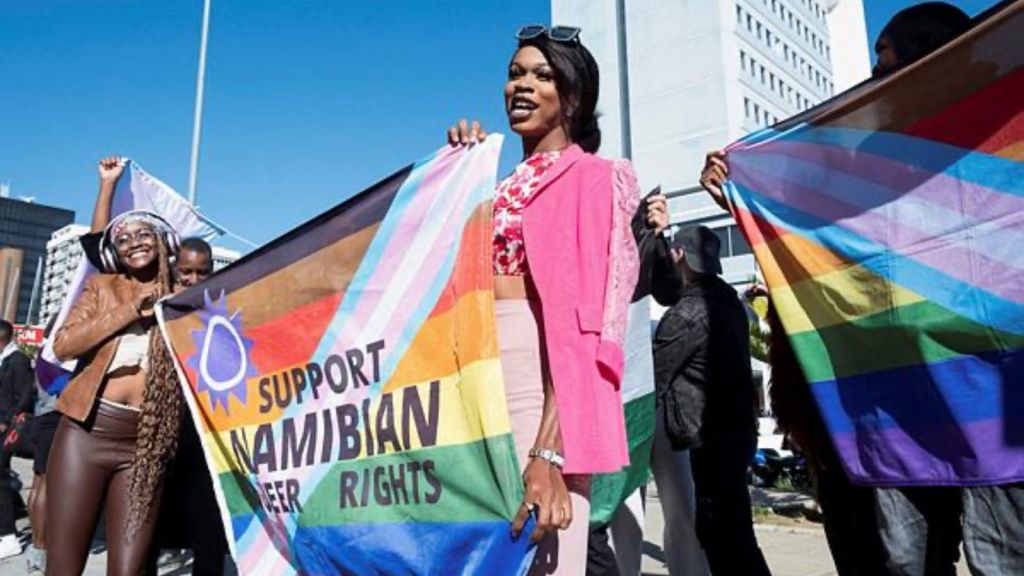In a landmark ruling on Friday, a Namibian court ruled that two colonial-era laws that criminalised same-sex acts between men were unconstitutional. The decision marks a significant victory for the LGBTQ community in Namibia.
The case was initiated by Namibian activist Friedel Dausab, with support from the UK-based Human Dignity Trust. Following the court’s decision, Dausab expressed his joy, stating, “It’s a great day for Namibia. It won’t be a crime to love anymore.”
Namibia inherited the laws upon independence from South Africa in 1990, though same-sex acts between men were initially criminalised during colonial rule. South Africa has since decriminalised same-sex sexual activity and is the only country on the continent to allow LGBTQ couples to adopt children, marry and enter civil unions.

Conversely, Uganda enacted one of the world’s harshest anti-LGBTQ laws, which included the death penalty for “aggravated homosexuality”, despite widespread condemnations from the West.
In West Africa, Ghana’s parliament passed a bill, which toughens criminal penalties for consensual same-sex relations, and criminalizes the actions of individuals and organisations that defend the rights of gay people.


